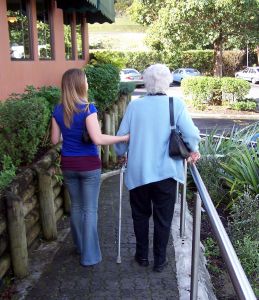History and Authority
 The Long Term Care Ombudsman Program is governed by the federal Older Americans Act and by South Carolina Law (Omnibus Adult Protection Act). As noted in the Omnibus Adult Protection Act, the Long Term Care Ombudsman Program shall investigate or cause to be investigated reports of abuse, neglect, and exploitation of vulnerable adults occurring in facilities. The Long Term Care Ombudsman Program may develop policies, procedures, and memoranda of agreement to be used in reporting these incidents and in furthering its investigations. The South Carolina Department of Health and Human Services administers the S.C. Long Term Care Ombudsman Program through Regional Offices located throughout the state. These programs are affiliated with Area Agencies on Aging and funded with federal, state and local dollars. There is no charge for services provided by the Ombudsman Program.
The Long Term Care Ombudsman Program is governed by the federal Older Americans Act and by South Carolina Law (Omnibus Adult Protection Act). As noted in the Omnibus Adult Protection Act, the Long Term Care Ombudsman Program shall investigate or cause to be investigated reports of abuse, neglect, and exploitation of vulnerable adults occurring in facilities. The Long Term Care Ombudsman Program may develop policies, procedures, and memoranda of agreement to be used in reporting these incidents and in furthering its investigations. The South Carolina Department of Health and Human Services administers the S.C. Long Term Care Ombudsman Program through Regional Offices located throughout the state. These programs are affiliated with Area Agencies on Aging and funded with federal, state and local dollars. There is no charge for services provided by the Ombudsman Program.
As a result of a 1971 directive by President Nixon, the Health, Education, and Welfare Department (HEW) established a new office to oversee all HEW programs relating to long term care facilities. The Office of Nursing Home Affairs (ONHA) was to be responsible for coordinating efforts by different agencies in the department to upgrade standards nationwide for the benefit of long term care residents. Establishment of ONHA and the appointment of Mrs. Marie Callender as it head presumably meant that for the first time, a single official was responsible for pulling together different HEW nursing home efforts into a single-coordinated program. Two hundred twenty-seven new personnel were added to the federal program. Furthermore, President Nixon introduced an eight point nursing home program in 1971.
1. Training of 2,000 state nursing-home inspectors;
2. Complete (100 percent) federal support of state inspections under
Medicaid;
3. Consolidation of enforcement activities;
4. Strengthening of federal enforcement of standards;
5. Short-term training for 41,000 professional and paraprofessional
nursing home personnel;
6. Assistance for state investigative “Ombudsman” units;
7. Comprehensive review of long term care; and
8. Crackdown on substandard nursing homes; cut-off of federal funds to
them.
What is a Long Term Care Ombudsman?
A Long Term Care Ombudsman seeks to improve the quality of life and quality of care of the residents of long term facilities. Residents of long term care facilities sometimes have little or no contact with the outside world. Many feel they lack control over their own lives. Ombudsmen are available to help these residents and their families by advocating to protect their health, safety, welfare, and rights.
What does the Long Term Care Ombudsman do?
- Investigates and works to resolve problems or complaints affecting
long term care residents. - Identifies problem areas in long term care and advocates or mediates
for change. - Provides information about long term care and related services.
- Promotes resident, family, and community involvement in long term
care. - Educates the community about the needs of long term care residents.
- * Coordinates efforts with other agencies concerned with long term
care. - Visits long term care facilities to talk to residents and monitor
conditions. - Educates facility staff about resident rights and other issues.
What types of issues does an Ombudsman handle?
- Residents’ rights
- Quality of care
- Abuse, neglect, and exploitation
- Transfers and discharges
Contact Us
Central Midlands Council of Governments
Central Midlands Long-Term Care Ombudsman Program
236 Stoneridge Drive
Columbia, South Carolina 29210
803-376-5389 or 1-800-391-1185
fax: 803-253-7542
The following information and forms maybe helpful for you or a loved one:
Advance Directives Forms
Health Care Power of Attorney Form
Declaration of a Desire for a Natural Death Form
For a List of Licensed Long-Term Care Facilities in South Carolina,
Go to S.C. Department of Health and Environmental Control.
